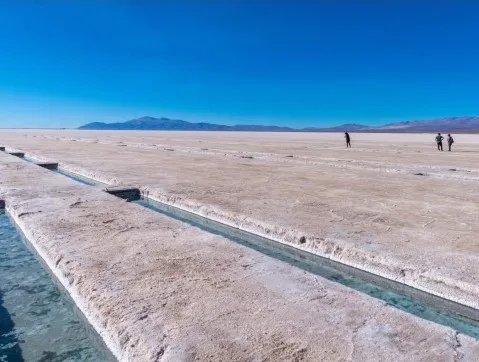By focusing on immigration, the U.S. is missing out on big opportunities in Latin America
By Erika Mouynes
The US presidential campaigns this year are expected to see more than $10bn spent on advertisements, and the main issue will almost certainly be immigration. A popular social media hashtag related to Latin America in the US has been  #securetheborder. Fear helps fuel voters. By the end of 2024, it seems likely that the US will have established a reductive relationship with Latin American countries in the minds of the American electorate for the foreseeable future.
#securetheborder. Fear helps fuel voters. By the end of 2024, it seems likely that the US will have established a reductive relationship with Latin American countries in the minds of the American electorate for the foreseeable future.
The costs will be high, distracting the US from a plethora of vital opportunities in favour of a rhetoric that reduces some of its most important allies and trading partners to a nuisance.

The Salinas Grandes in Argentina. In the US there is little talk of Latin America’s capacity to power the world with alternative fuels, despite the fact that it houses about 60% of identified global lithium reserves.
It wasn’t always this way. Americans historically understood their southern neighbours through food, music and travel, while US political leaders campaigned on strategic interests that advanced military, economic, and political goals. Now, the conversation regarding Latin American and Caribbean countries begins and ends with immigration control. In that equation, America stands to lose financially and strategically.
After all, the countries south of the border are an economic powerhouse. With a combined gross domestic product of more than $6tn — bigger than India or Japan — they account for nearly one-fifth of all US foreign trade. But in America, you would hardly know it. There is no talk of the region’s capacity to power the world with alternative fuels, despite the fact that it houses about 60 per cent of identified global lithium reserves. The same is true when we think about fossil fuel dependence: the absence of Latin America from this conversation is staggering, considering that the region provides 25 per cent of US oil imports. Guyana is home to some of the world’s most significant oil finds of the past decade.
And then there’s climate change. America’s southern neighbours house the Amazon, a rainforest almost the size of Australia, whose carbon sink is the equivalent of more than 10 years of global fuel emissions. As one of the most biodiverse regions in the world, it should be at the forefront of any US-led initiative on climate. Instead, this potential benefit is overshadowed completely by immigration issues.
The mounting costs of this stance are already affecting the US’s ability to compete with other influential actors such as China in the region. Latin America has become a key battleground for dominance in the global semiconductor industry. Its raw materials, as well as its manufacturing capabilities, provide a competitive advantage with broader implications for US national security. For that reason alone, US politicians might want to steer multinationals towards developing a strategic footprint in Latin America using the Americas Act. But while we should be hearing about how chips produced on this continent could help prepare for our AI-fuelled future, neither campaign will venture there.
To be clear, unauthorised immigration into the US is a top political priority. Multiple American cities have been thrown into crisis, their budgets maxed out and infrastructure stressed by the migrant surge. Border control and security measures are needed; avoiding this topic is not an option. But it is also not the responsibility of any one place. Only a concerted, co-ordinated effort from all the countries along a migrant’s route can adequately manage this challenge.
If Donald Trump and Joe Biden’s campaigns for the White House fail to recalibrate attitudes towards the Americas, they could significantly weaken an essential and mutually beneficial relationship. In creating their ad campaigns, candidates — along with the broadcasters and digital platforms — play an important part in shaping our political reality. But negative portrayals of Latinos that generate hostility will inevitably end up framing resource-rich partner countries as a threat. We will not easily be able to undo the damage caused by a destructive election cycle.
Instead of focusing on immigration with the seriousness and complexity it deserves, the public is tempted by clickbait. If America’s political campaigns flood television and social media with messages that reduce historic and strategic allies to a threat, the US will begin to look like a sore loser. Lost development. Lost potential.
These missed opportunities may not provide snappy soundbites, but addressing the problem now could help set an agenda for economic growth on both sides with the potential to also help tackle unauthorised immigration. Let’s not be afraid to demand that Trump and Biden embrace that fact before running full speed into a single-themed campaign.
_________________
Credit: Financial Times





















